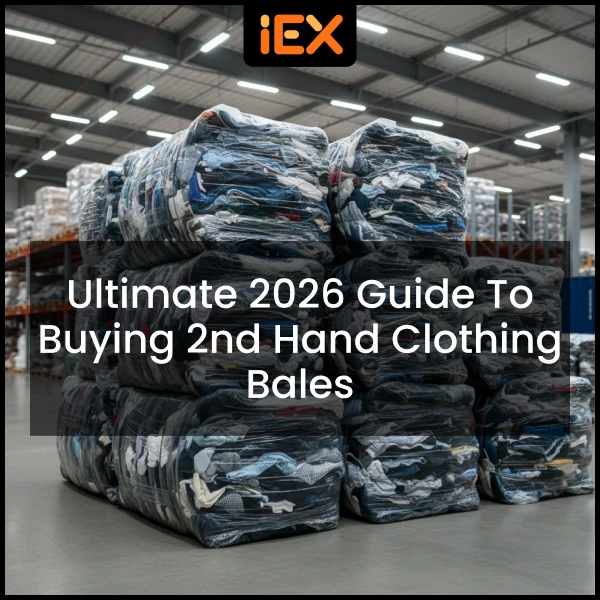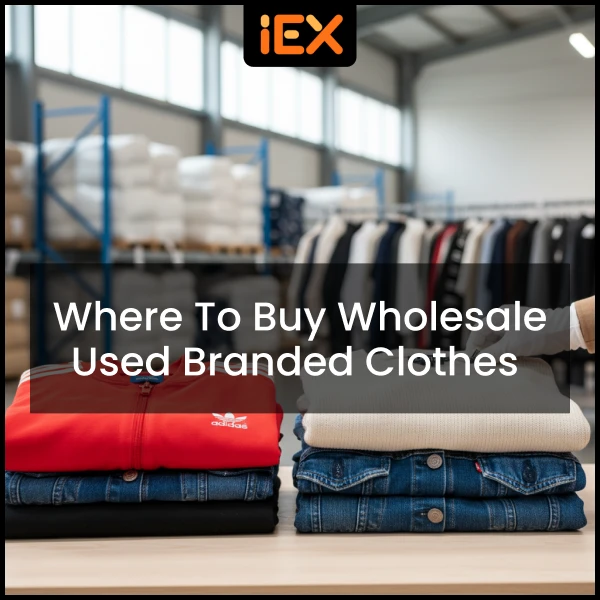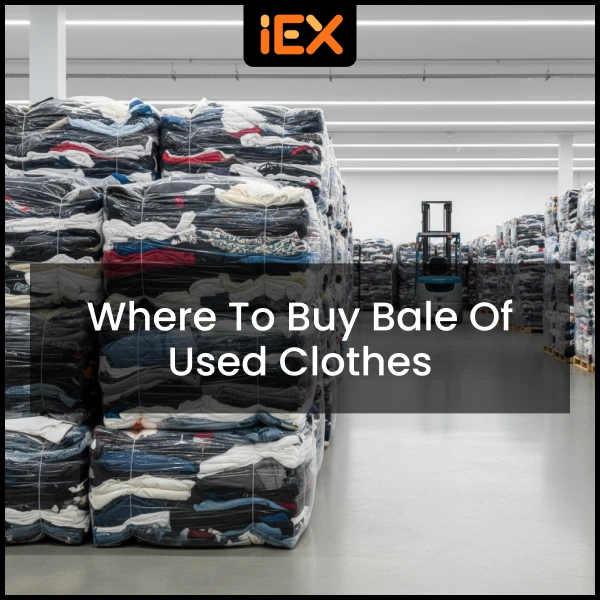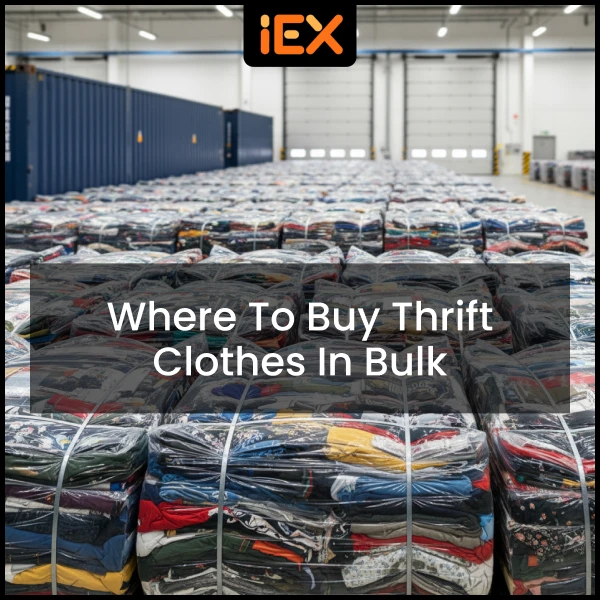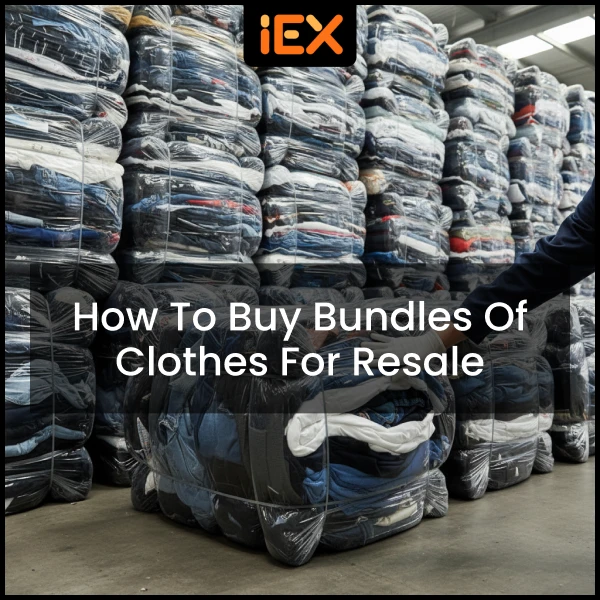Introduction
With the demand for affordable and quality second-hand clothes rising across Kenya, many entrepreneurs are turning to Mitumba bales as a profitable business opportunity. But while sourcing locally is common, importing Mitumba bales from countries like the UK, Canada, or China offers better quality and more variety.
In this guide, we’ll walk you through exactly how to import Mitumba bales to Kenya, including how to get mitumba bales from trusted mitumba bale suppliers, documentation requirements, shipping options, and common pitfalls to avoid.
This step-by-step guide will help you understand:
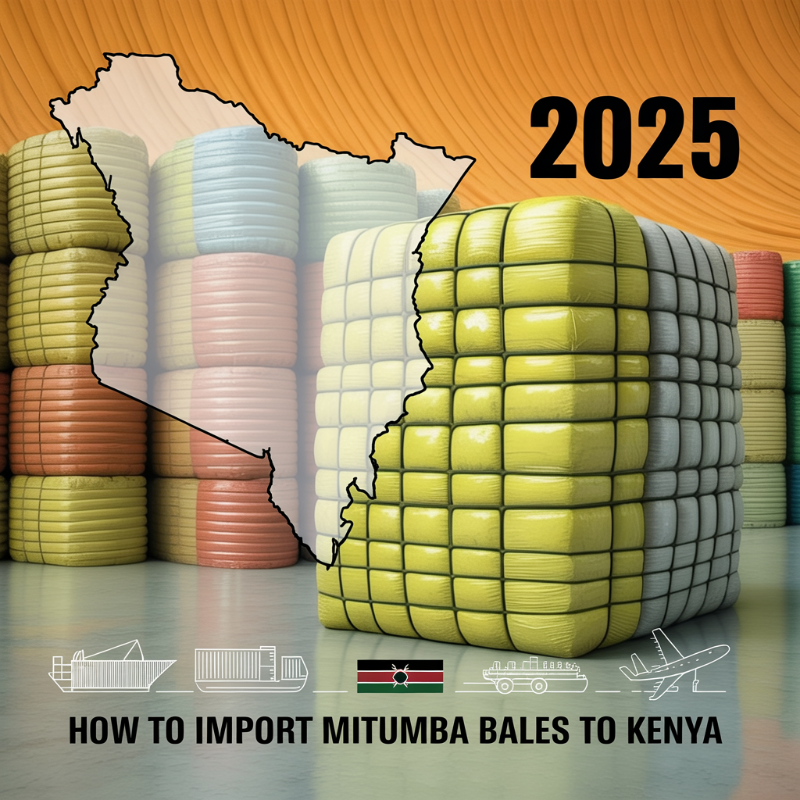
1. Why Import Mitumba Bales
2. Import Requirements in Kenya
3. How to Find Reliable Suppliers
4. Shipping & Import Costs
5. Customs & Clearance at Kenyan Ports
6. What to Do After Arrival
1. Why Import Mitumba Bales Instead of Buying Locally?
Buying mitumba bales locally may seem convenient, but it often comes with challenges like limited variety, inconsistent quality, and higher costs per piece.
By importing directly, you gain key advantages:
- ✅ Access to Camera Bales—High-quality, looking brand new, and Grade A used clothing.
- ✅ Wider Product Categories—Including women’s wear, children’s clothes, used bags, used bras, shoes bales, and more.
- ✅ Lower Costs—Better unit pricing when buying used clothing in bulk from the source.
Top sourcing countries for mitumba bales include:
- United Kingdom – Well-known for branded fashion, surplus stock, and seasonal styles.
- Canada – Offers clean, sorted, and neatly packed clothing, ideal for premium resale.
- China – Supplies competitively priced, unsorted bales, mixed-grade bales, brand-name clothing bales that suit various budget segments.
If you’re aiming for better quality, variety, and profit margins, importing is a smarter long-term strategy than buying mitumba bales from local middlemen.
2. What Do You Need to Import Mitumba Bales to Kenya?
To import Mitumba bales into Kenya legally and smoothly, you must prepare several key documents and fulfill regulatory requirements:
- ✅ Business Registration or Individual KRA PIN
You can import as a registered company or an individual trader. However, having a valid Kenya Revenue Authority (KRA) Personal Identification Number (PIN) is mandatory for customs processing. - ✅ Import Declaration Form (IDF)
Before shipment arrives, you must submit an IDF via the KRA iTax system. This form declares your imports and enables calculation of applicable duties and taxes, ensuring compliance with Kenyan law. - ✅ Proforma Invoice from Supplier
This document, provided by your supplier, details the shipment contents, including types of goods, quantities, prices, and shipping terms. It’s necessary for customs valuation and clearance. - ✅ Pre-Shipment Verification (KEBS Inspection)
Some imported goods require inspection by the Kenya Bureau of Standards (KEBS) before shipping. Although used clothing often qualifies for exemption, consulting with your clearing agent beforehand is recommended to avoid surprises. - ✅ Engage a Licensed Clearing Agent
A professional clearing agent will manage your shipment’s customs clearance process—submitting paperwork, paying duties, and coordinating cargo release—saving you time and minimizing delays.
3. How to Get Mitumba Bales from Reliable Suppliers
Sourcing Channels
- B2B Platforms
Popular international platforms such as Alibaba and GlobalSources offer a wide range of Mitumba bale suppliers. - Specialized Suppliers
Look for companies specializing in second-hand clothing bales, like Hissen Global, Indetexx, or UK-based exporters known for camera bales. - Trade Shows & Expos
Attend trade fairs and expos in major hubs like China or Dubai to meet suppliers face-to-face and inspect products. - Referrals
Ask for recommendations from experienced Mitumba sellers in your network, as word-of-mouth often leads to trustworthy contacts.
Tips to Identify Good Suppliers
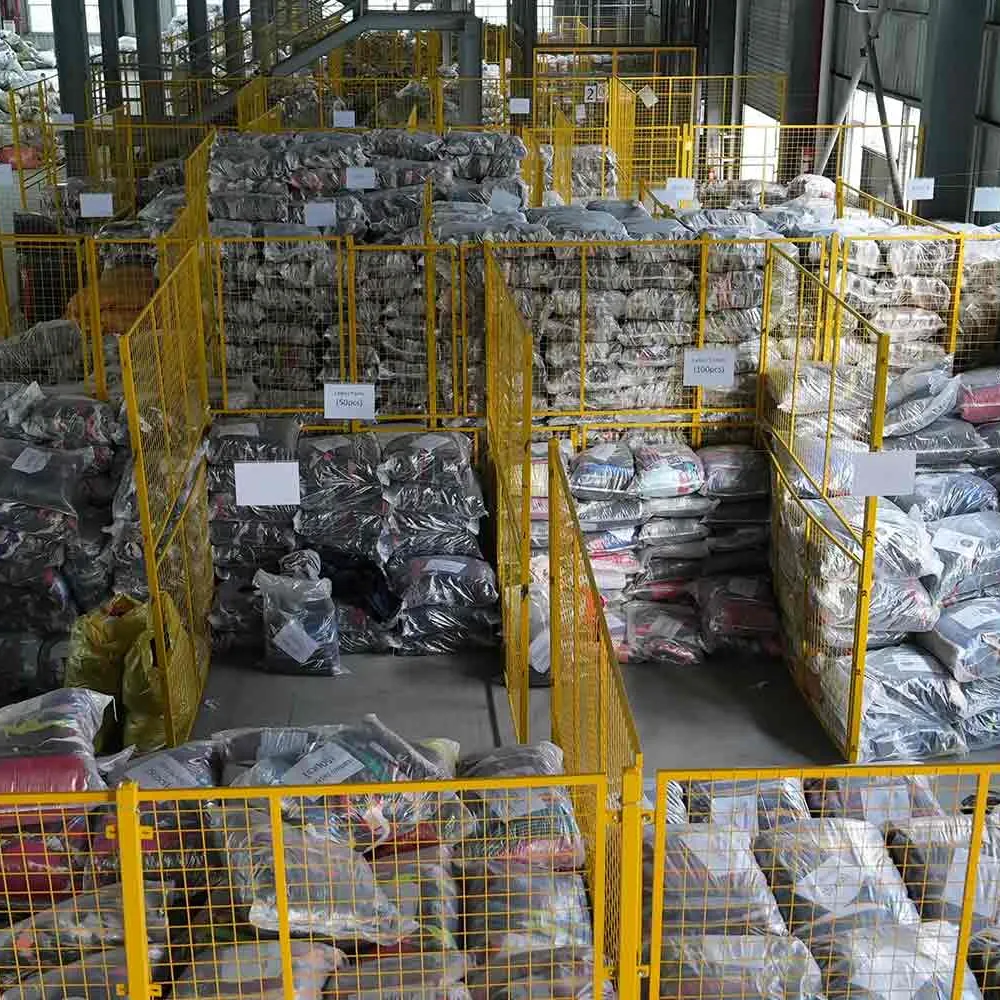
- Choose suppliers who offer camera bales or Grade A clothing for better quality and resale value.
- Request sample photos or even a video walkthrough of how the bales are packed and labeled.
- Confirm bale labeling standards, such as “Ladies Mix,” “Children Winter,” or other specific categories.
- Always start with a small trial order (e.g., 10–20 bales) to test quality and supplier reliability before placing large container orders.
- Visit the factory if possible to check packing process, cleanliness, and production scale.
- Check certifications and experience to ensure professional standards.
- Confirm production capacity and delivery time for large orders.
4. Shipping & Logistics Options
Now that you’ve found a mitumba bale supplier, the next step is shipping. Here are your options:
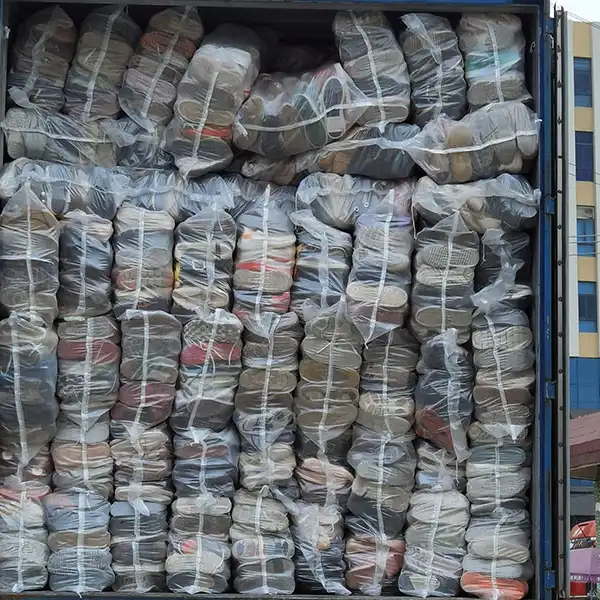
Shipping Methods
| Method | Description | Time | Cost |
| LCL (Less than Container Load) | Share space in a container with other traders | 4–6 weeks | $$ |
| FCL (Full Container Load) | Rent a full 20ft/40ft container | 3–5 weeks | $$$ but lower unit cost |
| Air Freight | Fast but expensive, for urgent samples | 7–10 days | $$$$$ |
A 20ft container holds roughly 260–280 mitumba bales, depending on bale size and category.
5. Kenya Customs & Clearance Procedure
When your Mitumba bales arrive at Mombasa Port or Nairobi Inland Container Depot (ICD), the following steps take place to clear your goods for delivery:
- Clearing Agent Submits Required Documents
Your licensed clearing agent will submit all necessary paperwork, including:
- Import Declaration Form (IDF)
- Commercial invoice from the supplier
- Packing list detailing the shipment contents
- Import Declaration Form (IDF)
- Customs Duty Assessment
Kenyan customs officials will review your documents and assess the applicable duties and taxes based on the shipment value and classification. - KEBS Inspection (If Applicable)
Some shipments may be subject to inspection by the Kenya Bureau of Standards (KEBS). Used clothing often qualifies for exemption, but it depends on specific regulations and shipment details. - Payment of Duties and Taxes
You or your clearing agent must pay the calculated import duties and VAT before your cargo can be released. - Cargo Release
After successful payment and clearance, you will receive the release order allowing you to pick up your Mitumba bales from the port or depot.
⚠️ Common Mistakes to Avoid
- Missing or Incorrect Documents
Incomplete paperwork or wrong HS (Harmonized System) codes can cause delays or shipment rejection. - Delayed Customs Declaration
Failing to declare your goods promptly can result in costly demurrage and storage fees. - Unreliable Suppliers
Suppliers who do not provide accurate and complete documentation can create clearance problems and increase import risk.
Ensuring all documents are accurate and working with an experienced clearing agent will help your import process run smoothly.
6. After Arrival: Selling & Distribution Tips
Once your Mitumba bales have cleared customs and reached your store or warehouse, the next step is to prepare them for sale:
Sort & Grade Items
- Grade A
High-quality or branded camera bales should be displayed first or sold at premium prices. - Grade B/C
Lower-grade items can be bundled into discount packs or used for clearance sales.
Sales Channels
- Wholesale
Sell in bulk to small shopkeepers and retailers. - Retail
Set up stalls in open-air markets or local bazaars. - Online Platforms
Utilize marketplaces like Jumia, Facebook Marketplace, and WhatsApp groups to reach wider audiences.
Pro Tip
Clearly label your mitumba bales with detailed descriptions such as “Ladies Dress – Camera Bale” to help customers understand the contents. Offering resale bundles can also attract bulk buyers and boost turnover.
Conclusion
Importing Mitumba bales to Kenya might seem complex initially, but with the right preparation, reliable suppliers like Indetexx, and a well-organized logistics plan, it’s completely achievable—even for first-time importers.
Partnering with Indetexx, a trusted leader in supplying high-quality Mitumba bales, ensures you get consistently graded, well-sorted products that appeal to Kenya’s growing market for affordable fashion.
By mastering the import process and sourcing from dependable suppliers such as Indetexx, you unlock higher profit margins, superior stock quality, and access to a broad customer base eager for value and style.
Start your import journey today with confidence—let Indetexx be your trusted partner every step of the way.
